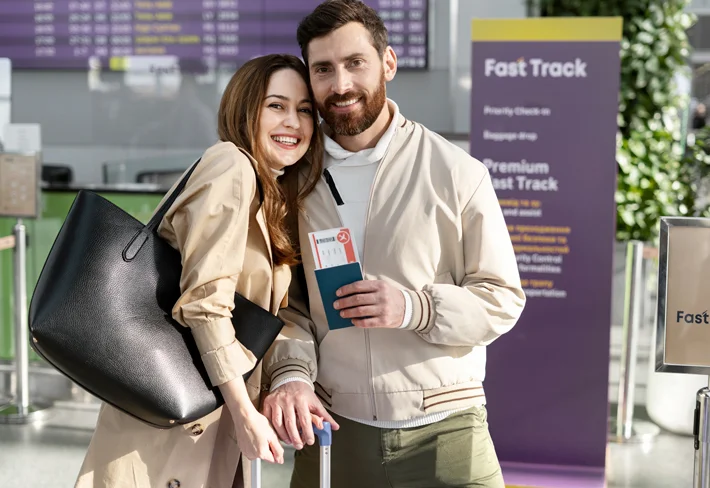
The Partner Visa allows the partner or spouse of an Australian citizen, Australian permanent resident or eligible New Zealand citizen to live in Australia.
At Asia Pacific Group, we’ve helped hundreds of Indians successfully reunite with their partners through onshore and offshore Partner Visa applications. Whether your partner is already settled in Australia or you’re engaged to be married soon, our registered consultants will guide you through every step — from proving your relationship to preparing the right documents.
This visa isn’t just about paperwork; it’s about helping start their lives together with confidence and peace of mind.
There are two main types of Partner Visas, depending on where you are when you apply – onshore and offshore.
If you’re already in Australia, you can apply for this visa. It’s a two-stage process. First, you apply for 820 visa. This is a temporary visa which serves as a pathway for the second step – permanent visa(801).
If you’re living outside Australia — for example, in India — you apply for 309 visa. After approval, You can move to Australia and live with your partner. Thereafter, you can then apply for the permanent visa — Subclass 100.
This visa is different from a traditional partner visa. The prospective marriage visa is a temporary visa — specifically designed for couples who are engaged but not yet married. This visa allows you to travel to Australia and get married within nine months; then apply for the onshore Partner Visa.
Each visa has different requirements and timelines, but the end goal is the same — reuniting with your partner in Australia.
Before approving your visa, the Australian Department of Home Affairs looks closely at your relationship, living arrangements, and commitment to each other — not just your documents.
To qualify:
Many applicants underestimate the kind of relationship evidence Australia requires — it’s not just wedding photos or chat screenshots. The Department often looks for joint finances, shared property or lease, travel records, and statements from friends or family confirming your relationship.
At Asia Pacific Group, we have a team of partner visa specialists for Australia to guide you on what proofs hold real value and how to present your relationship in a way that meets Australian immigration standards.
When presenting relationship proofs, your story, relationship dates, and supporting proofs should all align. Here’s what you’ll generally need:
Identity documents:If you’re applying from India, all your documents need to be translated to English. Only trust a certified translator with this. Blurred or incomplete uploads cause delays; each file you upload must be clear and readable.
A small mismatch in details can delay the process or trigger extra verification. That’s why our partner visa specialists for Australia check every document before submission to ensure it matches visa requirements and supports your case strongly.
You can connect with us over a call or book a consultation online. You can also visit our office and talk to a partner visa specialist in Chandigarh, if that suits you.
Processing times for partner visas vary case to case — ranging from 16 to 34 months, depending on the visa subclass you apply for.
The base application fee for partner visa starts from around AUD 9,365. Apart from this, you also have to take care of small expenses like health checks, biometrics, etc.
You can attach pictures as proof, but they alone are not enough. You need more support documents showing joint finances, statements from family and friend, etc.
Before applying, de facto partners must have stayed together for a period of at least one year.
The partner visa application costs a fortune and is time-consuming too. Instead of losing time and money to a mistake that could have been avoided, contact a professional who can help you with the process.